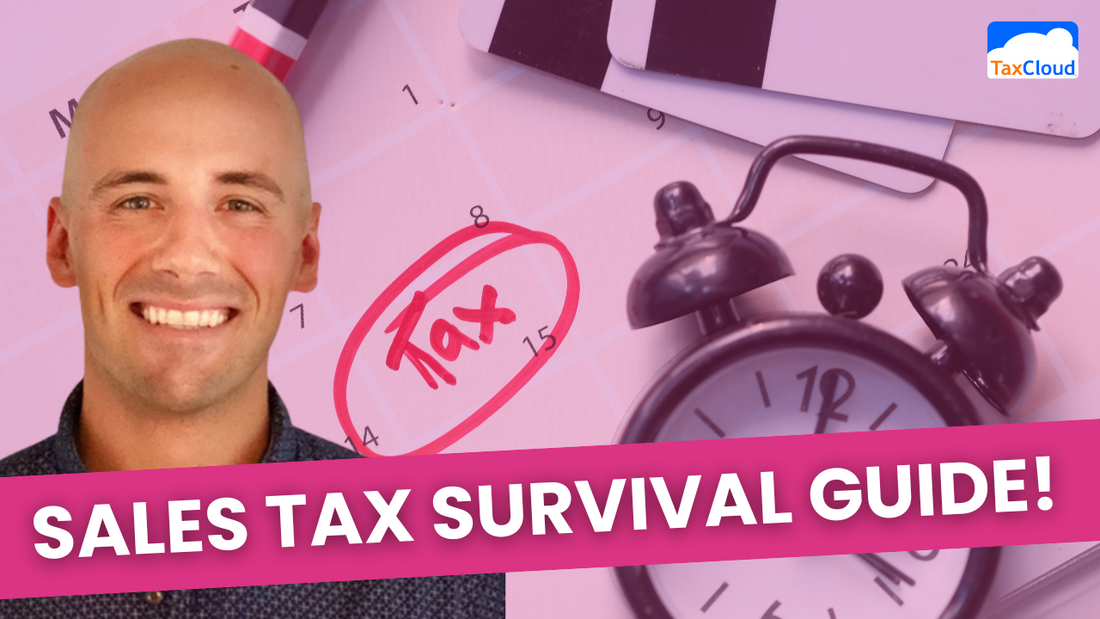One of the most common reasons eCommerce businesses begin to struggle isn’t poor marketing, weak branding or even a lack of demand. It’s that they haven’t done their sums, especially when it comes to tax.
This week on Winning with Shopify, we explored one of the biggest financial pitfalls Shopify store owners face: sales tax. Our guest was Ryan from TaxCloud, a platform designed to simplify the sales tax process for growing online businesses.
The Sales Tax Problem No One Talks About
Sales tax might not be the most exciting part of running an eCommerce brand, but it’s one of the most critical. Too many businesses focus on growth, only to realise too late that they’ve under-calculated or completely missed their tax obligations. What looked like a profitable year can quickly turn into a financial mess.
In some cases, the first time a business owner truly considers sales tax is when they receive a letter from a tax authority or have their ads disapproved by platforms like Google due to inconsistent tax information at checkout.
What TaxCloud Does (and Why Shopify Brands Should Care)
TaxCloud is a sales tax automation tool built for eCommerce brands. It integrates with Shopify and other platforms to help store owners:
- Understand where they have sales tax obligations (also known as nexus),
- Automatically calculate the correct tax at checkout,
- File the necessary paperwork across different states.
TaxCloud’s platform is designed to remove complexity, reduce risk, and make tax compliance far less time-consuming for online retailers.
Understanding Nexus: Your First Step
In the US, sales tax requirements vary from state to state. Knowing where you have nexus, a legal connection that obligates you to collect tax, is essential.
There are two types:
1. Physical Nexus: Triggered when your business has a physical presence such as an office, employee, or warehouse in a state.
2. Economic Nexus: Based on sales volume or number of transactions in a state, even if you have no physical presence there.
TaxCloud can help identify where your business has nexus by connecting directly to your Shopify store and analysing your orders.
Not All Products Are Taxed the Same
Tax obligations aren’t just determined by where you sell, but also what you sell. Some products, like children’s shoes or groceries, may be tax-exempt in certain states but taxable in others. Digital products like eBooks and online courses have their own rules too.
TaxCloud uses built-in taxability codes to help determine which products should have tax applied and in which jurisdictions.
When to Start Automating Sales Tax
Even small Shopify stores should use Shopify Tax to calculate sales tax at checkout. It ensures consistency and prevents issues with platforms like Google Merchant Center.
However, once your business starts to sell across multiple states or regions, managing compliance manually becomes unsustainable. That’s when automation tools like TaxCloud are especially useful. They can handle the registration and filing side, freeing you up to focus on growth.
Common Mistakes to Avoid
Many businesses run into trouble by:
- Collecting tax before they’re registered (which can lead to complications),
- Ignoring the economic nexus in fast-growth periods,
- Overpaying for legacy tax platforms when more affordable options exist,
- Misunderstanding responsibilities when drop shipping or selling digital goods.
Another issue is failing to track sales from different platforms and marketplaces. While platforms like Amazon may collect and file tax for you, those sales can still contribute to nexus thresholds in certain states. Consolidating this data is key, and TaxCloud can help.
Marketplaces and Tax Compliance
If you sell on platforms like Amazon, Etsy, or even the Shopify Shop App, those platforms often handle the tax collection. However, these orders still count toward your overall sales totals, and can affect your nexus. This makes it important to track all channels holistically.
A Real-Time View of Your Finances
Having accurate, real-time financial data is vital for long-term success. Tools like TaxCloud support your profit and loss (P&L) reporting by giving you visibility on your tax obligations across states and product types. This means better forecasting, clearer margins, and fewer nasty surprises.
Choosing the Right Tools and Partners
Tax compliance shouldn’t be a roadblock to growth. By using modern tools and verified partners like TaxCloud, Shopify store owners can scale confidently, knowing their tax obligations are covered.
TaxCloud is also part of the Streamlined Sales Tax (SST) program in the US, which offers free tax filing in participating states, an easy way to save on fees and improve compliance.

